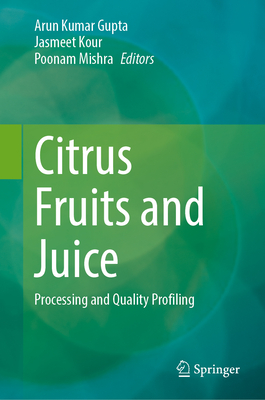图书简介
The field of cognitive development is an exciting one that has undergone a revolution in the past generation, with a wealth of new findings, methods and theoretical ideas that transform our understanding of children’s thinking. This new SAGE Major Work presents a collection of important papers - both classic and contemporary - that cover key contributions in the area of cognitive development in children, designed to be a touchstone text for scholars, practitioners and educators with an interest in children’s thinking. Although the primary focus is on basic scientific research, each volume also discusses important applied issues, such as role of critical periods in perceptual development, or the implications of cognitive development for learning in academic contexts. Volume One: Basic Processes Volume Two: Concepts, Categories and Language Volume Three: Core Theories Volume Four: Reasoning, Problem-Solving and Academic Skills Volume Five: Context and Culture
VOLUME ONE: BASIC PROCESSES \\ Piaget’s TheoryJean Piaget \\ Perceptual Learning in Development: Some Basic ConceptsEleanor Gibson \\ Initial Knowledge: Six SuggestionsElizabeth Spelke \\ Epigenetics and the Biological Definition of Gene X Environment InteractionsMichael Meaney \\ Imitation of Facial and Manual Gestures by Human NeonatesAndrew Meltzoff and M. Keith Moore \\ Visual Perception in the Newborn Infant: Issues and DebatesAlan Slater \\ Superior Detection of Threat-Relevant Stimuli in InfancyVanessa LoBue and Judy DeLoache \\ Action Experience Alters 3-Month-Old Infants’ Perception of Others’ ActionsJessica Sommerville, Amanda Woodward and Amy Needham \\ The Other-Race Effect Develops during Infancy: Evidence of Perceptual NarrowingDavid Kelly et al. \\ Constructing a Past in Infancy: A Neuro-Developmental AccountPatricia Bauer \\ Believing is Seeing: How Rumors Can Engender False Memories in PreschoolersGabrielle Principe et al. \\ Mother-Child Conversations about the Past: Relationships of Style and Memory over TimeElaine Reese, Catherine Haden and Robyn Fivush \\ Developmental Change in Speed of Processing during Childhood and AdolescenceRobert Kail \\ An Age-Related Dissociation Between Knowing Rules and Using ThemPhilip David Zelazo, Douglas Frye and Tanja Rapus \\ Preschool Program Improves Cognitive ControlAdele Diamond \\ Developing Human Brain FunctionsMark Johnson \\ Beyond What Develops When: Neuroimaging May Inform How Cognition Changes with DevelopmentDima Amso and B.Casey \\ The Adolescent BrainB. Casey, Sarah Getz and Adriana Galvan \\ VOLUME TWO: CONCEPTS, CATEGORIES, AND LANGUAGE \\ Possible Stages in the Evolution of the Language CapacityRay Jackendoff \\ Children Creating Core Properties of Language: Evidence from an Emerging Sign Language in NicaraguaAnn Senghas et al. \\ Cross-Language Speech Perception: Evidence for Perceptual Reorganization during the First Year of LifeJanet Werker and Richard Tees \\ Statistical Learning in 8-Month-Old InfantsJenny Saffran, Richard Aslin and Elissa Newport \\ Word Learning as Bayesian InferenceFei Xu and Joshua Tenenbaum \\ Do Words Facilitate Object Categorization in 9-Month-Old Infants?Marie Balaban and Sandra Waxman \\ Can Language Restructure Cognition? The Case for SpaceAsifa Majid et al. \\ Numerical Cognition without Words: Evidence from AmazoniaPeter Gordon \\ The Importance of Shape in Early Lexical LearningBarbara Landau, Linda Smith and Susan Jones \\ Infants’ Ability To Draw Inferences about Nonobvious Object Properties: Evidence from Exploratory PlayDare Baldwin, Ellen Markman and Riikka Melartin \\ Detecting Blickets: How Young Children Use Information about Novel Causal Powers in Categorization and InductionAlison Gopnik and David Sobel \\ Conceptual Influences on Category-Based InductionSusan Gelman and Natalie Davidson \\ Psychological Essentialism in ChildrenSusan Gelman \\ Thinking in Categories Or Along a Continuum: Consequences for Children’s Social JudgmentsAllison Master, Ellen Markman and Carol Dweck \\ Cultural Transmission of Social EssentialismMarjorie Rhodes, Sarah-Jane Leslie and Christina Tworek \\ VOLUME THREE: CORE THEORIES \\ First Principles Organize Attention To and Learning about Relevant Data: Number and the Animate-Inanimate Distinction as ExamplesRochel Gelman \\ Mechanisms of Theory Formation in Young ChildrenAlison Gopnik and Laura Schulz \\ Précis of The Origin of ConceptsSusan Carey \\ The Microgenetic Method: A Direct Means for Studying Cognitive DevelopmentRobert Siegler and Kevin Crowley \\ Object Permanence in 3½- and 4½-Month-Old InfantsRenée Baillargeon \\ Rapid Change in the Symbolic Functioning of Very Young ChildrenJudy DeLoache \\ Arrows of Time in Early ChildhoodWilliam Friedman \\ Young Children’s Conception of the Biological WorldKayoko Inagaki and Giyoo Hatano \\ Folkbiology Meets Microbiology: A Study of Conceptual and Behavioral ChangeTerry Kit-fong Au et al. \\ Are Children ’Intuitive Theists’? Reasoning about Purpose and Design in NatureDeborah Kelemen \\ Developing a Theory of MindHenry Wellman \\ Baillargeon Do 15-Month-Old Infants Understand False Beliefs?Kristine Onishi et al. \\ You Can’t Always Get What You Want: Infants Understand Failed Goal-Directed ActionsAmanda Brandone and Henry Wellman \\ Spontaneous Theory of Mind and its Absence in Autism Spectrum DisordersAtsushi Senju \\ Social Evaluation in Preverbal InfantsJ.Kiley Hamlin, Karen Wynn and Paul Bloom \\ Accent Trumps Race in Guiding Children’s Social PreferencesKatherine Kinzler, Kristin Shutts, Jasmine Dejesus and Elizabeth Spelke \\ VOLUME FOUR: REASONING, PROBLEM-SOLVING, AND ACADEMIC SKILLS \\ Development and LearningJean Piaget \\ Problem Solving in Infancy: The Emergence of an Action PlanMichael McCarty, Rachel Clifton and Roberta Collard \\ Bootstrapping the Mind: Analogical Processes and Symbol SystemsDedre Gentner \\ Core Systems of NumberLisa Feigenson, Stanislas Dehaene and Elizabeth Spelke \\ Individual Differences in Non-Verbal Number Acuity Correlate with Maths AchievementJustin Halberda, Michèle Mazzocco, Lisa Feigenson \\ Mathematics Teaching in the United States Today (And Tomorrow): Results from the TIMSS 1999 Video StudyJames Hiebert et al. \\ Indexing Transitional KnowledgeTheresa Graham and Michelle Perry \\ Literacy Growth in the Academic Year Versus Summer from Preschool Through Second Grade: Differential Effects of Schooling Across Four SkillsLori Skibbe \\ Cross-Cultural Similarities in the Predictors of Reading AcquisitionCatherine McBride-Chang, and Robert Kail \\ The Relation Between Essentialist Beliefs and Evolutionary ReasoningAndrew Shtulman and Laura Schulz \\ Stereotype Susceptibility in Children: Effects of Identity Activation on Quantitative PerformanceNalini Ambady et al. \\ Preschoolers’ Responses to Social Comparisons Involving Relative FailureMarjorie Rhodes and Daniel Brickman \\ Praise for Intelligence Can Undermine Children’s Motivation and PerformanceClaudia Mueller and Carol Dweck \\ Subtle Linguistic Cues Affect Children’s MotivationAndrei Cimpian \\ Scientific and Pragmatic Challenges for Bridging Education and NeuroscienceSashank Varma, Bruce McCandliss and Daniel Schwartz \\ VOLUME FIVE: CONTEXT AND CULTURE \\ Extracts from The Cultural Origins of Human Cognition.Michael Tomasello \\ Does the Chimpanzee Have a Theory of Mind? 30 Years LaterJosep Call and Michael Tomasello \\ Economic Cognition in Humans and Animals: The Search for Core MechanismsLaurie Santos and Kelly Hughes \\ Cognitive Development in Chimpanzees: A Trade-Off Between Memory and Abstraction?Tetsuro Matsuzawa \\ Trust in Testimony: How Children Learn about Science and ReligionPaul Harris and Melissa Koenig \\ The Hidden Structure of OverimitationDerek Lyons, Andrew Young and Frank Keil \\ Natural PedagogyGergely Csibra and Gyorgy Gergely \\ The Double-Edged Sword of Pedagogy: Instruction Limits Spontaneous Exploration and DiscoveryElizabeth Bonawitz et al. \\ Weaving Together Culture and Cognition: An Illustration from MadagascarRita Astuti \\ The Coexistence of Natural and Supernatural Explanations Across Cultures and DevelopmentCristine Legare et al. \\ Mexican-Heritage Children’s Attention and Learning from Interactions Directed To OthersKatie Silva, Maricela Correa-Chávez and Barbara Rogoff \\ A Developmental Examination of the Conceptual Structure of Animal, Artifact, and Human Social Categories Across Two Cultural ContextsMarjorie Rhodes and Susan Gelman \\ Parents Explain More Often to Boys Than to Girls during Shared Scientific ThinkingKevin Crowley et al. \\ Relations Between Temperament and Theory of Mind Development in the United States and China: Biological and Behavioral Correlates of Preschoolers’ False-Belief UnderstandingJonathan Lane et al. \\ The Relation Between Individual Differences in Fantasy and Theory of MindMarjorie Taylor and Stephanie Carlson \\ A Visit from the Candy Witch: Children’s Belief in a Novel Fantastical EntityJacqueline Woolley et al.
Trade Policy 买家须知
- 关于产品:
- ● 正版保障:本网站隶属于中国国际图书贸易集团公司,确保所有图书都是100%正版。
- ● 环保纸张:进口图书大多使用的都是环保轻型张,颜色偏黄,重量比较轻。
- ● 毛边版:即书翻页的地方,故意做成了参差不齐的样子,一般为精装版,更具收藏价值。
关于退换货:- 由于预订产品的特殊性,采购订单正式发订后,买方不得无故取消全部或部分产品的订购。
- 由于进口图书的特殊性,发生以下情况的,请直接拒收货物,由快递返回:
- ● 外包装破损/发错货/少发货/图书外观破损/图书配件不全(例如:光盘等)
并请在工作日通过电话400-008-1110联系我们。
- 签收后,如发生以下情况,请在签收后的5个工作日内联系客服办理退换货:
- ● 缺页/错页/错印/脱线
关于发货时间:- 一般情况下:
- ●【现货】 下单后48小时内由北京(库房)发出快递。
- ●【预订】【预售】下单后国外发货,到货时间预计5-8周左右,店铺默认中通快递,如需顺丰快递邮费到付。
- ● 需要开具发票的客户,发货时间可能在上述基础上再延后1-2个工作日(紧急发票需求,请联系010-68433105/3213);
- ● 如遇其他特殊原因,对发货时间有影响的,我们会第一时间在网站公告,敬请留意。
关于到货时间:- 由于进口图书入境入库后,都是委托第三方快递发货,所以我们只能保证在规定时间内发出,但无法为您保证确切的到货时间。
- ● 主要城市一般2-4天
- ● 偏远地区一般4-7天
关于接听咨询电话的时间:- 010-68433105/3213正常接听咨询电话的时间为:周一至周五上午8:30~下午5:00,周六、日及法定节假日休息,将无法接听来电,敬请谅解。
- 其它时间您也可以通过邮件联系我们:customer@readgo.cn,工作日会优先处理。
关于快递:- ● 已付款订单:主要由中通、宅急送负责派送,订单进度查询请拨打010-68433105/3213。
本书暂无推荐
本书暂无推荐















